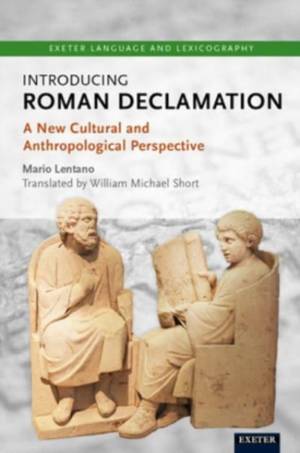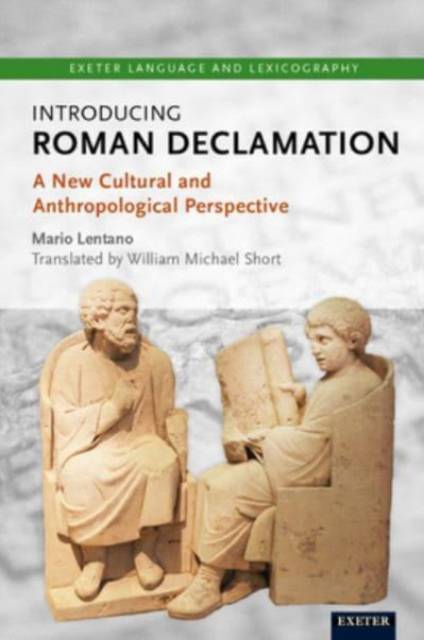
- Afhalen na 1 uur in een winkel met voorraad
- Gratis thuislevering in België vanaf € 30
- Ruim aanbod met 7 miljoen producten
- Afhalen na 1 uur in een winkel met voorraad
- Gratis thuislevering in België vanaf € 30
- Ruim aanbod met 7 miljoen producten
Zoeken
€ 148,45
+ 296 punten
Omschrijving
Introducing Roman Declamation provides an overview of school declamation, that is, the themes on which students of the Roman rhetorical schools cut their teeth and proved their talent. Beginning in the late Republican period and throughout the entire imperial age, the rhetorical schools were an obligatory step in the curriculum of elite education. Despite its huge importance and the sizeability of the preserved material, almost 300 themes, declamation has only in recent times received the scholarly attention it deserves, as the victim of a prejudice that was already widespread in antiquity, owing to the chasm between school themes and the real world. But in fact declamation provides a privileged lens through which to investigate the culture of the imperial age, the evoluation of law, family and social relations, the relationship with literature and with contemporaneous politics. With an up-to-date bibliography, the book explores these and other aspects of Roman declamation, highlighting both long-standing conclusions of research, and points that remain debated by scholars or that still remain to be investigated. The book is particularly intended for undergraduates who wish to become familiar with this important aspect of Latin literature, as well as for scholars of the ancient world and of Roman history, and for specialists in Roman rhetoric, to whom it presents the state of the art.
Specificaties
Betrokkenen
- Auteur(s):
- Vertaler(s):
- Uitgeverij:
Inhoud
- Aantal bladzijden:
- 112
- Taal:
- Engels
- Reeks:
Eigenschappen
- Productcode (EAN):
- 9781804131015
- Verschijningsdatum:
- 5/09/2023
- Uitvoering:
- Hardcover
- Formaat:
- Genaaid
- Afmetingen:
- 156 mm x 234 mm
- Gewicht:
- 358 g

Alleen bij Standaard Boekhandel
+ 296 punten op je klantenkaart van Standaard Boekhandel
Beoordelingen
We publiceren alleen reviews die voldoen aan de voorwaarden voor reviews. Bekijk onze voorwaarden voor reviews.











